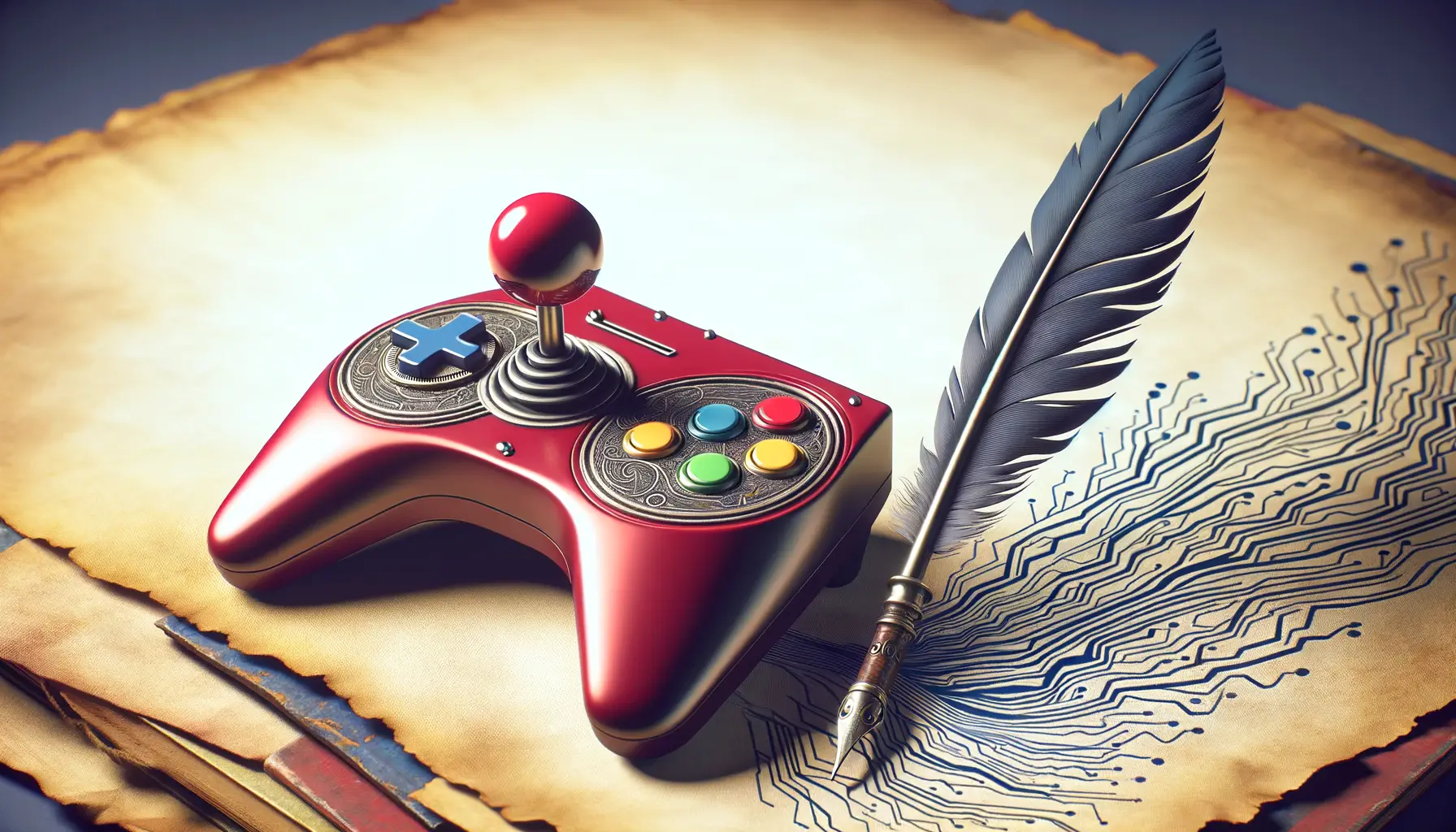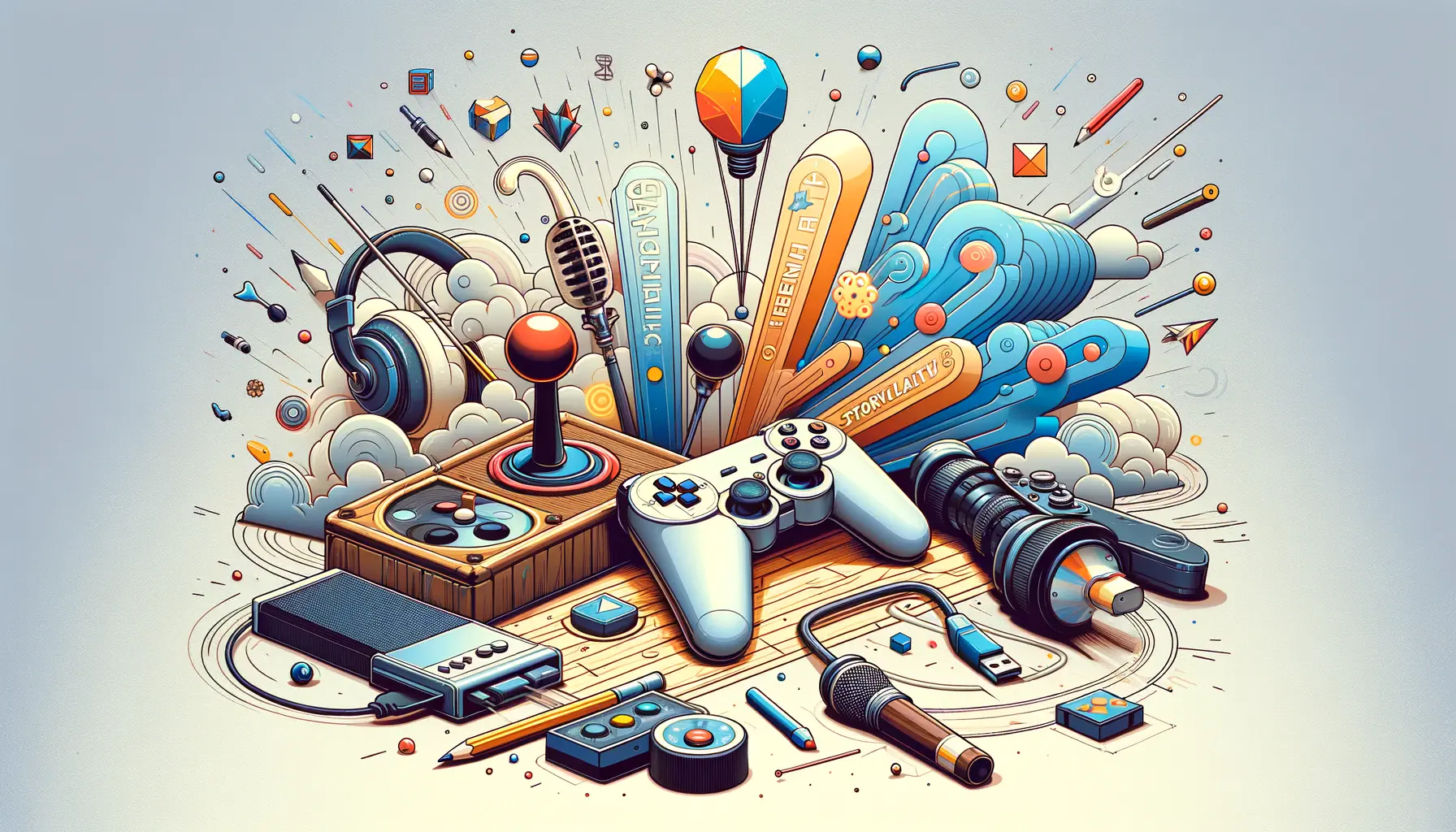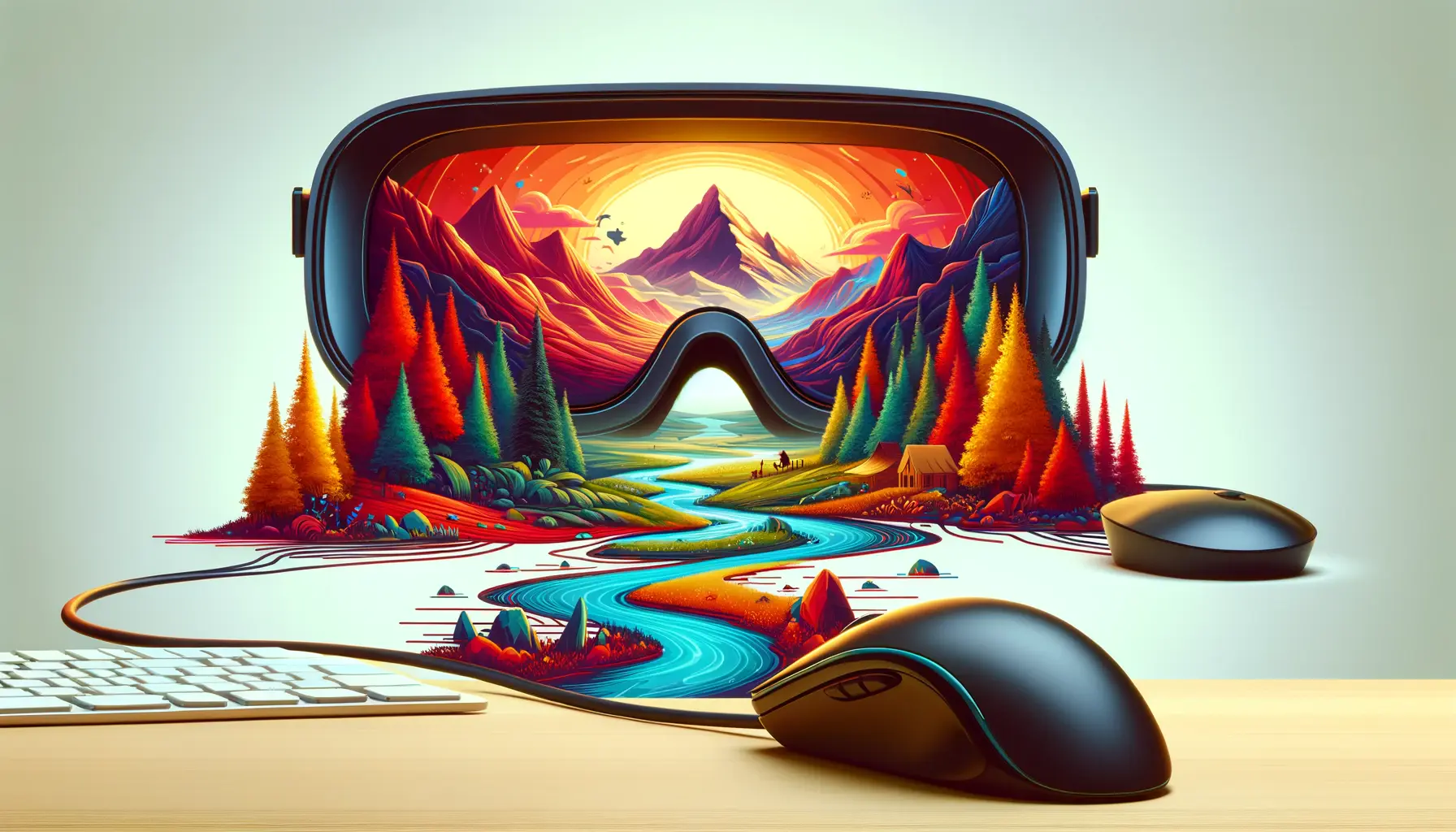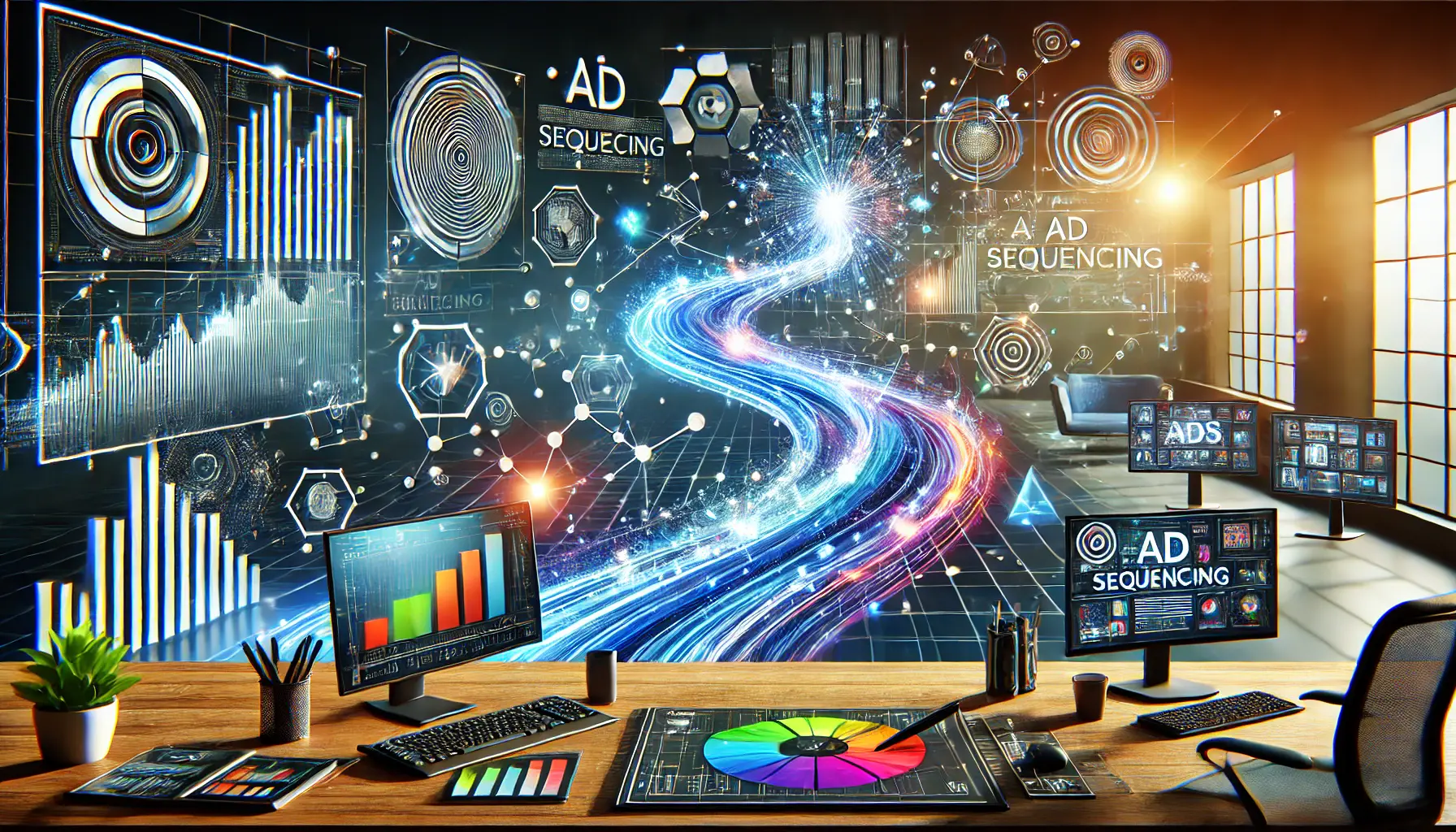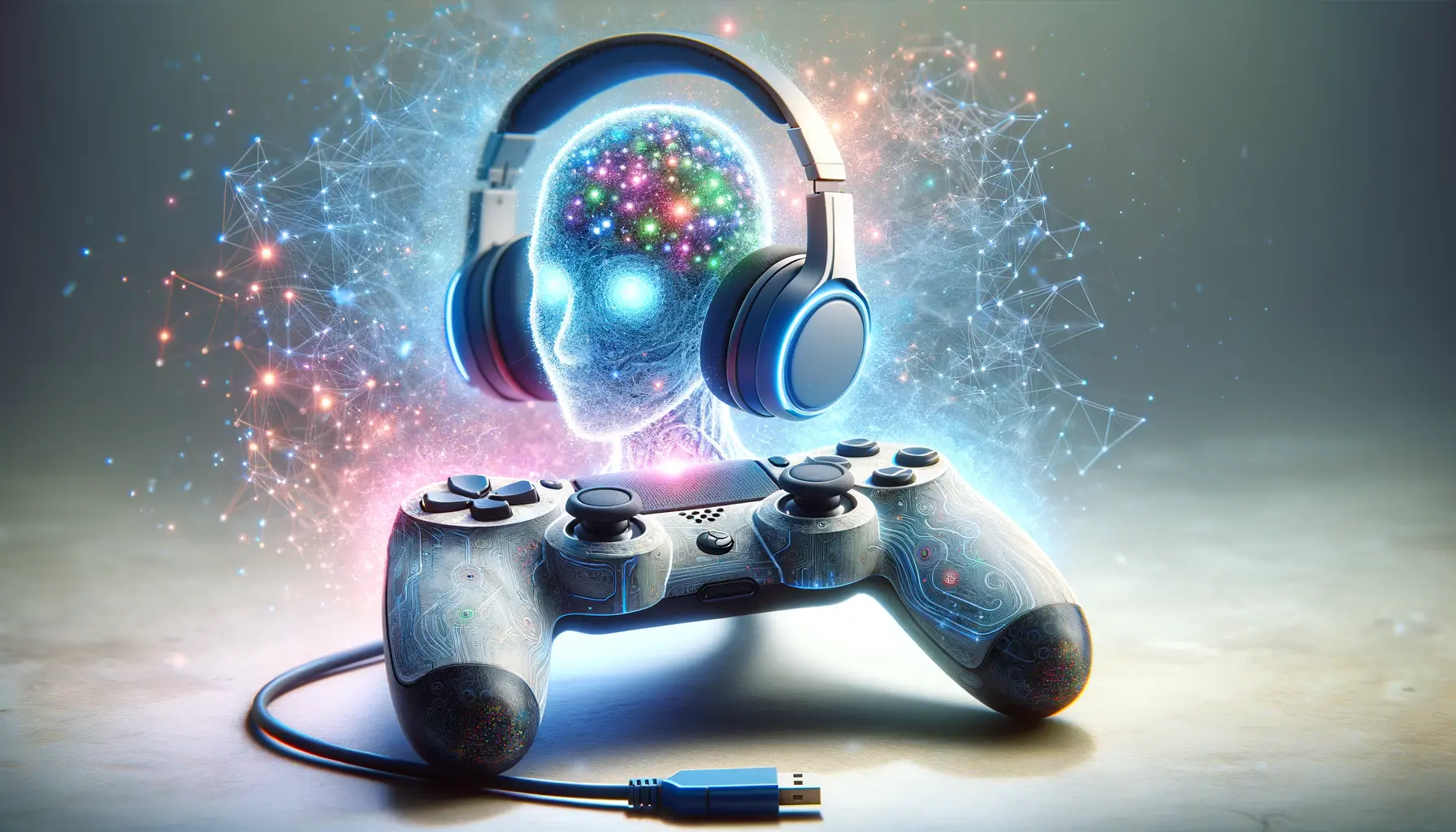The intersection of artificial intelligence and gaming has opened new frontiers in narrative creation, where Claude AI emerges as a pivotal force.
This innovative technology is reshaping how stories are told within the digital realms of gaming, offering both developers and players unprecedented levels of interaction and immersion.
By leveraging Claude AI, games are no longer bound by linear storytelling but can evolve with dynamic narratives that adapt to player choices, creating a deeply personalized gaming experience.
At the core of this transformation is the ability of Claude AI to understand and generate human-like text, enabling it to craft complex narratives that respond to in-game actions and decisions.
This capability not only enhances the storytelling aspect of games but also introduces a new layer of gameplay mechanics, where the narrative itself becomes a puzzle to solve or a path to explore.
The integration of Claude AI in gaming is not just about creating stories; it’s about creating worlds that feel alive and responsive to the player’s presence.
- Exploring the Impact of Claude AI on Game Development
- Revolutionizing Game Mechanics with AI
- Challenges and Solutions in AI-Driven Game Development
- Enhancing Narrative Depth with AI-Generated Content
- Player Engagement and Retention Strategies
- Future Trends in AI-Driven Gaming
- Building Communities Around AI-Enhanced Games
- Reimagining the Future of Gaming with Claude AI
- Claude AI in Gaming: Frequently Asked Questions
Exploring the Impact of Claude AI on Game Development
The Evolution of Narrative Design
The advent of Claude AI in the gaming industry marks a significant shift in narrative design, moving away from pre-scripted paths to more fluid and dynamic storytelling.
Traditional game narratives often relied on a set of predetermined outcomes, limiting player agency and the potential for replayability.
However, with Claude AI, developers can now create stories that adapt in real-time to player choices, leading to a more engaging and varied gaming experience.
This evolution in narrative design not only challenges players to think critically about their decisions but also encourages them to explore every nuance of the game’s story.
Moreover, Claude AI’s capacity for natural language processing allows for more nuanced and believable character interactions.
NPCs (non-player characters) can now engage in conversations that feel more natural and responsive to the player’s input, breaking down the barriers between scripted game dialogue and genuine human interaction.
This leap forward in AI-driven narrative design opens up new possibilities for storytelling in games, where every playthrough can offer a unique narrative journey.
Enhancing Player Immersion Through Adaptive Storytelling
One of the most significant advantages of integrating Claude AI into gaming is the enhancement of player immersion.
By creating narratives that adapt to individual player actions, games can offer a more personalized and immersive experience.
This adaptive storytelling not only makes the game world feel more alive but also deepens the player’s connection to the story and characters.
Players are no longer just observers of a story; they become active participants, shaping the narrative with their choices and actions.
This level of immersion is achieved through the AI’s understanding of complex narrative structures and its ability to generate content that aligns with the evolving storyline.
Whether it’s altering the outcome of a quest based on player decisions or dynamically generating dialogue to reflect the current state of the game world, Claude AI ensures that the narrative experience is both coherent and deeply engaging.
This approach to storytelling not only enriches the gaming experience but also sets a new standard for narrative depth and player agency in digital storytelling.
The integration of Claude AI in gaming is revolutionizing narrative design, offering dynamic and immersive storytelling that adapts to player choices.
Revolutionizing Game Mechanics with AI
The incorporation of Claude AI into gaming goes beyond narrative enhancement, fundamentally altering game mechanics and how players interact with the game world.
By integrating advanced AI capabilities, developers can create more complex and responsive environments, where every element within the game can adapt and react to player actions in real-time.
This section delves into the transformative impact of Claude AI on game mechanics, illustrating how it elevates the gaming experience to new heights.
Dynamic Environment Interaction
One of the standout features of Claude AI is its ability to generate dynamic interactions within the game environment.
Traditional games often feature static worlds, where objects and NPCs have limited responses to player actions.
However, with Claude AI, the environment itself becomes a living entity, capable of changing and responding in nuanced ways.
This can manifest in various forms, such as:
- Environmental changes that reflect the narrative progression or player actions, enhancing the sense of impact and agency.
- Adaptive difficulty levels that adjust based on the player’s skill and choices, offering a tailored challenge that keeps the game engaging.
- Interactive objects with AI-driven behaviors, providing more depth and realism to the game world.
Personalized Gameplay Experiences
Claude AI’s ability to understand and generate content also allows for the creation of personalized gameplay experiences.
By analyzing player behavior and preferences, the AI can modify game elements to suit individual play styles, making each playthrough unique.
This personalization can be seen in:
- Customized quests and storylines that align with the player’s past decisions and actions, offering a truly personalized narrative journey.
- AI-generated content that adapts to the player’s interests and challenges them in new and unexpected ways.
- Dialogue and character interactions that reflect the player’s relationship with the game world and its inhabitants, fostering a deeper emotional connection.
The integration of Claude AI into game mechanics not only enhances the depth and complexity of gameplay but also ensures that each player’s experience is unique and engaging.
By leveraging AI to create dynamic environments and personalized experiences, developers can captivate players in ways previously unimaginable, setting a new benchmark for interactive entertainment.
Incorporating Claude AI into game mechanics offers a new realm of possibilities for creating immersive and personalized gaming experiences.
Challenges and Solutions in AI-Driven Game Development
While the integration of Claude AI into gaming heralds a new era of interactive storytelling and dynamic gameplay, it also presents a unique set of challenges for developers.
These challenges range from technical hurdles to ethical considerations, each requiring careful attention and innovative solutions.
This part explores the complexities of AI-driven game development and the strategies employed to address these challenges.
One of the primary challenges is ensuring that the AI-generated content remains consistent with the game’s narrative and world-building elements.
Claude AI, with its advanced language models, can generate vast amounts of content, but aligning this content with the game’s lore and style demands meticulous oversight.
Developers must find a balance between leveraging AI’s creative potential and maintaining the game’s coherence and artistic vision.
Technical Integration and Complexity Management
Integrating Claude AI into existing game development pipelines can be technically challenging.
The complexity of AI models and the need for them to interact seamlessly with game engines and scripts require a high level of technical expertise.
Solutions to these challenges include:
- Developing robust AI middleware that can act as an intermediary between the AI and the game engine, ensuring smooth communication and data exchange.
- Implementing adaptive AI frameworks that can dynamically adjust to the game’s changing requirements and scale with its complexity.
- Investing in developer education and training programs to build expertise in AI integration and management within game development teams.
Addressing Ethical and Creative Concerns
The use of AI in game development also raises ethical questions, particularly regarding content generation and the potential for creating sensitive or inappropriate material.
Moreover, there’s a concern about AI overshadowing human creativity, with the technology potentially limiting the role of human storytellers and designers.
Addressing these concerns involves:
- Implementing content filters and moderation tools to ensure that AI-generated material aligns with ethical standards and community guidelines.
- Creating collaborative workflows where AI serves as a tool to enhance human creativity, not replace it, ensuring that game development remains a deeply human-centric process.
- Establishing clear ethical guidelines for AI use in game development, focusing on transparency, respect for player data, and the promotion of positive gaming experiences.
Despite these challenges, the potential of Claude AI to revolutionize game development is undeniable.
By navigating these complexities with innovative solutions and ethical considerations, developers can unlock new possibilities for immersive, engaging, and deeply personal gaming experiences.
Navigating the challenges of AI-driven game development requires a blend of technical innovation and ethical consideration.
Enhancing Narrative Depth with AI-Generated Content
The advent of Claude AI in gaming has not only transformed narrative structures but also significantly enhanced the depth and complexity of game narratives.
By leveraging AI to generate content, developers can create rich, multi-layered stories that adapt and evolve based on player choices, ensuring a unique experience for every playthrough.
This part explores how Claude AI contributes to deepening narrative depth and enriching the storytelling process in games.
At the heart of this enhancement is Claude AI’s ability to understand context and generate coherent, relevant content that aligns with the game’s overarching narrative.
This capability allows for the development of intricate plot lines, character backstories, and world lore that would be exceedingly difficult and time-consuming to craft manually.
The AI’s contribution to narrative depth can be seen in several key areas:
Dynamic Plot Development
With Claude AI, game plots are no longer static but can evolve in real-time, reacting to player decisions and actions.
This dynamic plot development ensures that each player’s journey through the game is unique, with multiple branching storylines and endings that reflect the complexity of real-world choices and consequences.
Key benefits include:
- Increased replay value, as players are encouraged to explore different paths and outcomes.
- Greater player agency, with the narrative adapting to reflect individual decisions and actions.
- Enhanced emotional engagement, as players see the direct impact of their choices on the game world and its inhabitants.
Rich Character Development
Claude AI also enables more nuanced and detailed character development.
By generating dialogue and interactions based on the game’s evolving narrative and the player’s relationship with the characters, AI can create a sense of depth and realism in character arcs.
This approach allows for:
- Complex character personalities that evolve over time, reacting to the player’s actions and decisions.
- Dynamic relationships between characters, including friendships, rivalries, and romances, that change based on the narrative context.
- Personalized character interactions that reflect the player’s previous choices, enhancing the sense of immersion and connection to the game world.
The integration of Claude AI into the narrative design process not only enriches the storytelling but also pushes the boundaries of what is possible in game narratives.
By generating content that adapts to and evolves with the player’s journey, Claude AI ensures that each gaming experience is as unique and complex as the individual at the controls.
Claude AI’s ability to generate dynamic, context-aware content significantly enhances the narrative depth and complexity of games.
Player Engagement and Retention Strategies
In the competitive landscape of the gaming industry, keeping players engaged and ensuring their long-term retention are paramount.
The integration of Claude AI into gaming offers innovative strategies to captivate players, making their experience more immersive and personalized.
This part examines how Claude AI can be leveraged to boost player engagement and retention through tailored content, adaptive challenges, and interactive storytelling.
By understanding player behavior and preferences, Claude AI enables developers to create games that adapt in real-time, offering a more personalized gaming experience.
This adaptability not only enhances player engagement but also encourages players to remain invested in the game over time.
The following strategies highlight how Claude AI contributes to player engagement and retention:
Personalized Content Creation
Claude AI’s ability to generate content dynamically allows for the creation of personalized gaming experiences.
By analyzing player data, the AI can tailor quests, challenges, and narratives to match individual player preferences, ensuring that the game remains engaging and relevant.
This personalization can manifest in various ways, such as:
- Customized storylines that reflect the player’s choices and actions, offering a unique narrative journey for each player.
- Adaptive difficulty settings that cater to the player’s skill level, providing a balanced challenge that keeps the game accessible yet engaging.
- Personalized in-game events and rewards that align with the player’s interests and achievements, enhancing the sense of accomplishment and progression.
Enhancing Social Interactions
Another key aspect of player engagement is the facilitation of social interactions within the game.
Claude AI can enhance these interactions by generating dynamic content that encourages collaboration, competition, and communication among players.
This includes:
- AI-driven NPCs that can participate in or moderate player interactions, adding depth and realism to social encounters.
- Dynamic events that require player cooperation, fostering a sense of community and teamwork.
- Competitive challenges that adapt to the players’ skill levels, ensuring fair and engaging competition.
The strategic use of Claude AI in gaming not only enriches the player experience but also serves as a powerful tool for developers to increase player engagement and retention.
By offering personalized and adaptive content, along with enhanced social interactions, games can maintain their appeal and relevance, encouraging players to return and engage with the game world over time.
Leveraging Claude AI for personalized and adaptive gaming experiences is key to enhancing player engagement and retention.
Future Trends in AI-Driven Gaming
The integration of Claude AI into gaming is not just a current innovation but a glimpse into the future of the industry.
As technology evolves, so too will the ways in which AI is utilized to create more immersive, interactive, and personalized gaming experiences.
This part explores the potential future trends in AI-driven gaming, highlighting how Claude AI could shape the development and enjoyment of games in the years to come.
As developers and researchers continue to push the boundaries of what AI can achieve, the gaming industry stands on the brink of a new era of innovation.
The future of AI-driven gaming is likely to be characterized by even more sophisticated AI models, deeper integration into game development, and innovative uses that we can only begin to imagine.
Here are some of the trends that are expected to define the future of gaming with Claude AI:
Advanced AI Personalization
The trend towards personalized gaming experiences is set to deepen, with Claude AI leading the way in creating games that adapt not just to individual player actions but also to emotions and psychological states.
Future games could use AI to analyze player reactions in real-time, adjusting narratives, difficulty levels, and gameplay mechanics to create a truly personalized experience.
This could include:
- Games that adjust their narrative tension and pacing based on the player’s emotional state, detected through biometric feedback.
- Dynamic difficulty adjustment that not only considers the player’s skill level but also their current stress levels or frustration, ensuring an enjoyable experience for all players.
- Personalized learning experiences in educational games, where the AI tailors challenges and content to the learner’s pace and learning style.
Immersive AI Worlds
The future of AI-driven gaming also promises more immersive and believable game worlds, where every element is responsive and interactive.
Claude AI could enable the creation of fully dynamic environments that change over time, react to player actions, and evolve in ways that mimic real-world ecosystems.
This level of immersion could transform gaming into an even more powerful medium for storytelling and exploration, with potential applications including:
- Creating ecosystems that evolve based on player interactions, with AI-driven flora and fauna that respond to environmental changes.
- Developing non-linear narratives that branch and intertwine in complex ways, offering an unparalleled depth of story exploration.
- Enhancing multiplayer experiences with AI-driven events and challenges that adapt to the collective actions of the player community.
The potential of Claude AI in gaming is vast and still largely untapped.
As we look to the future, it’s clear that AI will not only continue to enhance the way games are played and experienced but also redefine the possibilities of interactive entertainment.
The next generation of games, powered by advanced AI technologies like Claude AI, promises to bring us closer than ever to realizing the full potential of digital worlds.
The future of AI-driven gaming holds the promise of unprecedented personalization, immersion, and interactivity, redefining the boundaries of what games can be.
Building Communities Around AI-Enhanced Games
The rise of Claude AI in gaming has not only transformed the way games are developed and played but also how communities form around these games.
AI-enhanced games offer unique opportunities for community engagement, fostering environments where players can share experiences, strategies, and content.
This final part explores the role of Claude AI in building and sustaining gaming communities, highlighting the potential for these technologies to create more connected and interactive gaming ecosystems.
Community building in the context of AI-enhanced games goes beyond traditional forums and social media platforms.
Claude AI enables the creation of in-game experiences that can bring players together in new and meaningful ways.
By leveraging AI to enhance community interactions, developers can create games that not only entertain but also facilitate the formation of vibrant, active communities.
Here are some ways Claude AI is contributing to this dynamic:
Shared AI-Generated Content
One of the most exciting aspects of Claude AI is its ability to generate content that can be shared and experienced by the community.
This includes custom quests, stories, and challenges that players can create and share with others, fostering a sense of creativity and collaboration within the community.
Shared AI-generated content can take many forms, such as:
- Community-driven narrative experiences where players contribute to the evolving story of the game world.
- Custom challenges and puzzles created by players for others to solve, encouraging collaboration and competition.
- Shared virtual spaces designed by players using AI-generated assets, offering new venues for interaction and exploration.
Enhancing Social Interactions
Claude AI can also enhance social interactions within games, making them more meaningful and engaging.
By generating dynamic dialogues and scenarios based on player interactions, AI can create a sense of depth and realism in social encounters.
This enhanced social interaction helps to build stronger bonds within the community, as players can engage in more complex and rewarding conversations and collaborations.
Examples include:
- AI-driven NPCs that can mediate player interactions, introducing quests or challenges that require community cooperation.
- Dynamic events that adapt to the community’s actions, creating shared goals that unite players.
- AI-generated storylines that incorporate community decisions, making each player’s contributions feel valued and impactful.
The potential of Claude AI to enrich gaming communities is vast, offering new ways for players to connect, collaborate, and share their experiences.
As AI technology continues to evolve, the possibilities for community engagement and interaction will only expand, paving the way for more inclusive and dynamic gaming ecosystems.
Through the power of AI, gaming communities can become more connected, creative, and engaged, enhancing the overall gaming experience for everyone involved.
Claude AI is key to fostering vibrant, interactive gaming communities, enhancing the way players connect, share, and experience games together.
Reimagining the Future of Gaming with Claude AI
The integration of Claude AI into the gaming industry represents a monumental shift in how games are developed, played, and experienced.
This article has explored the multifaceted impact of Claude AI on gaming, from enhancing narrative depth and game mechanics to revolutionizing player engagement and community building.
As we stand on the cusp of a new era in gaming, it’s clear that Claude AI is not just a tool for creating games but a catalyst for redefining the entire gaming landscape.
The Dawn of Dynamic Gaming Narratives
The use of Claude AI in creating dynamic and adaptive narratives has opened up new possibilities for storytelling within games.
By allowing narratives to evolve based on player choices, Claude AI has introduced a level of depth and personalization previously unseen in the industry.
This shift towards more immersive and interactive storytelling not only enhances the player’s experience but also sets a new standard for narrative complexity in gaming.
Transforming Game Mechanics and Player Experiences
Claude AI’s impact extends beyond narratives, fundamentally altering game mechanics and the overall player experience.
Through the development of dynamic environments and personalized gameplay, Claude AI ensures that each player’s journey is unique and engaging.
The technology’s ability to adapt to and reflect the player’s actions and preferences has not only increased engagement but also significantly boosted player retention rates.
Building Connected and Creative Communities
Perhaps one of the most exciting prospects of Claude AI in gaming is its potential to foster vibrant, interactive communities.
By enabling shared AI-generated content and enhancing social interactions within games, Claude AI has paved the way for more connected and collaborative gaming ecosystems.
These AI-enhanced communities offer new opportunities for players to engage with each other and the game world, creating a more inclusive and dynamic gaming culture.
In conclusion, the advent of Claude AI in gaming is transforming the industry in unprecedented ways.
From creating more engaging narratives and game mechanics to fostering stronger community ties, Claude AI is at the forefront of the next gaming revolution.
As developers continue to explore the possibilities of this technology, we can expect to see games that are not only more immersive and personalized but also more inclusive and connected.
The future of gaming, powered by Claude AI, promises to bring us closer to realizing the full potential of interactive digital storytelling and entertainment.
Claude AI in Gaming: Frequently Asked Questions
Explore common inquiries about the revolutionary impact of Claude AI on the gaming industry.
Yes, Claude AI can engage in interactive games, offering a versatile platform for trivia, quizzes, and word puzzles, enhancing the gaming experience.
Claude AI dynamically adapts game narratives based on player choices, creating personalized and immersive storytelling experiences in gaming.
Its ability to understand and generate human-like text allows for complex narratives and responsive game environments, setting it apart from other AI models.
Yes, Claude AI can significantly aid in game development by automating content creation and providing tools for dynamic storytelling and character development.
Claude AI can enhance multiplayer experiences by generating dynamic events and facilitating deeper social interactions among players.
By offering personalized gameplay and adaptive challenges, Claude AI significantly boosts player engagement and retention in games.
While Claude AI excels in narrative and character development, creating entire game worlds requires integration with other game development tools and technologies.
Future trends include more advanced personalization, immersive AI worlds, and innovative community-building features, further transforming the gaming landscape.
